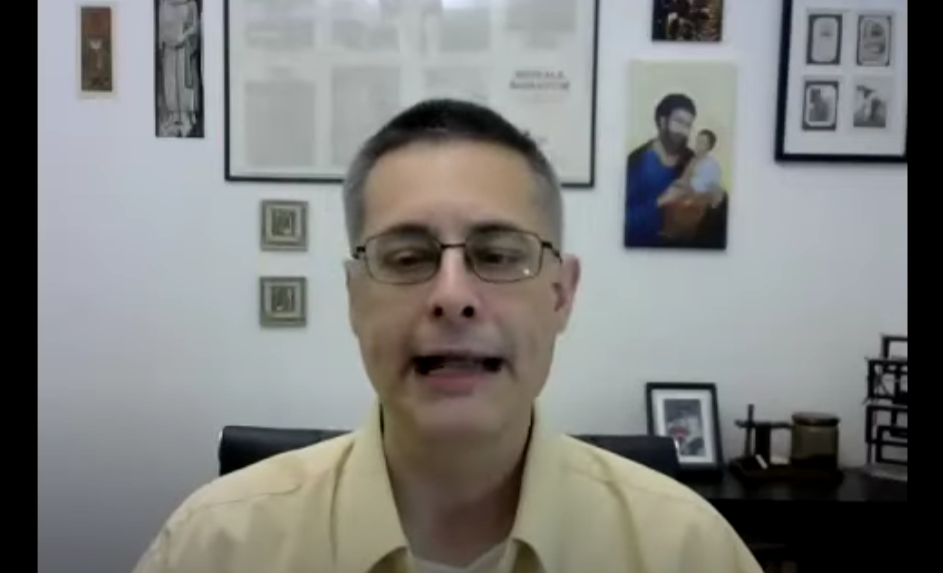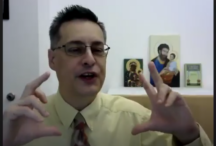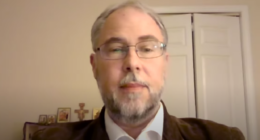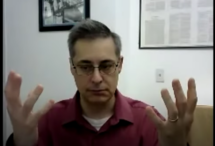A reader asks:
What are some clear signs when discerning a decision?
We have a life decision as a family to make and we’ve been searching for an answer for the better part of 4 years with no clear signs. It feels as though we are living in some kind of limbo waiting for some kind of sign from God. We are restless and uneasy with the situation we currently have. I’ve always thought that when you’re making the right decision in Gods perfect time, that doors will be opened, the right people will be put in your path etc. And when it’s not the right time doors will be slammed in your face and no matter how much you fight, you won’t get anywhere. Is that accurate? Or will there be situations where you’re forced to tear down doors and try to make the impossible, possible?
1. Discerning God’s Will Is Not Passive—It Requires Action and Peace
There’s a common mistake in our circles: waiting passively for a “sign from Heaven” while the roof leaks and the kids are growing. God’s will is not usually revealed in fireworks or prophetic dreams. More often, it’s revealed through ordered desire, peace, circumstances, and moral clarity.
As St. Ignatius of Loyola put it: “God’s will is known through consolation and desolation.” That is:
- When you imagine walking through a certain door, do you experience peace—even if it’s scary or sacrificial?
- When you cling to the status quo, is it true peace, or is it avoidance, fear, or despair?
Restlessness is a sign. Not always that something is wrong morally, but that something is incomplete. God stirs the heart to prevent us from settling into false peace.
2. Doors Opening and Closing: Truth or Myth?
You’re right in thinking that God will sometimes open doors when it’s His time. But here’s the critical part:
Sometimes God leaves the door closed to see if you’re willing to knock hard enough to prove your faith and leadership.
That’s not contradiction—it’s Scripture:
“Ask, and it shall be given you; seek, and ye shall find; knock, and it shall be opened unto you.” (Matt 7:7)
He doesn’t say, “Wait by the door until I open it.” He says knock. That’s action. That’s faith.
In some seasons, you will have to tear down a door, as you said—but only when you’re sure it’s the right house.
So, is it accurate to believe:
- Open doors mean “go”? ✅ Yes, often.
- Closed doors mean “stop”? ⚠️ Not always.
- Sometimes God waits for you to lead in faith and knock? ✅ Absolutely.
3. Four Marks of a God-Guided Decision
Here’s a framework you can use to test if it’s time to move:
1. Is it morally sound?
This is non-negotiable. Is the decision consistent with the teachings of the Church, your duties as a husband and father, and your role as protector and provider?
If yes, proceed.
2. Does it bring greater order to your family?
God’s will always moves us toward order, not chaos. Even if it’s difficult or sacrificial, will this decision:
- Strengthen your marriage?
- Provide a more stable environment for your children?
- Allow you to fulfill your God-given vocation more fully?
If yes, that’s a green light.
3. Is there peace in your heart?
Not the peace of comfort—but the peace of conviction. The kind you feel before stepping onto a battlefield because it’s the right fight.
If your heart is restless from avoidance, it’s time to move.
4. Are you staying put out of fear?
Fear is not from God. Prudence is from God. But fear that paralyzes the will is the devil’s tool. Satan doesn’t need you to commit mortal sin—he just needs you stuck.
If fear is holding you back, it’s time to fast, pray, and then act.
4. What Would You Advise Your Own Son If He Were in Your Shoes?
This is a sobering question I ask myself often. If my grown son came to me with this same dilemma, what would I tell him?
That’s your mirror. That’s your clarity.
If you would tell your son, “Son, it’s time to make a move. It’s been long enough. Trust God and lead your family,” then there’s your answer.
5. Final Thoughts: God Trusts You to Lead
God gave you the authority in your home. You don’t need a neon sign from Heaven. You need prayer, prudence, and boldness. If you’ve been faithful in prayer, you’ve already been given more than most.
So here’s the challenge:
- Stop waiting for peace to fall on you like a blanket. Peace follows obedience.
- Make the best decision you can with what you have. God will guide your steps once you start moving.
- And if a door slams hard? You’ll know it’s not the one. But don’t wait for it to open magically.
God doesn’t guide parked cars. Start driving—He’ll steer.





